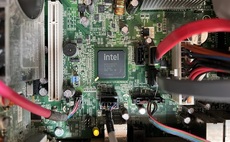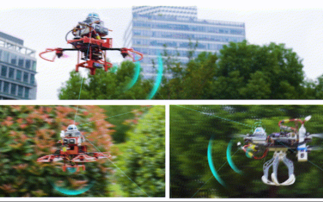AMD's top-of-the-range Epyc 7601 boast 32 cores, 64 threads and 3.2GHz
AMD has been showing off its Zen-based Epyc 7000 series server microprocessors that, it hopes, will grab a slice of the $21bn per year market that it had practically given up on over the past decad...
To continue reading this article...
Join Computing
- Unlimited access to real-time news, analysis and opinion from the technology industry
- Receive important and breaking news in our daily newsletter
- Be the first to hear about our events and awards programmes
- Join live member only interviews with IT leaders at the ‘IT Lounge’; your chance to ask your burning tech questions and have them answered
- Access to the Computing Delta hub providing market intelligence and research
- Receive our members-only newsletter with exclusive opinion pieces from senior IT Leaders




















